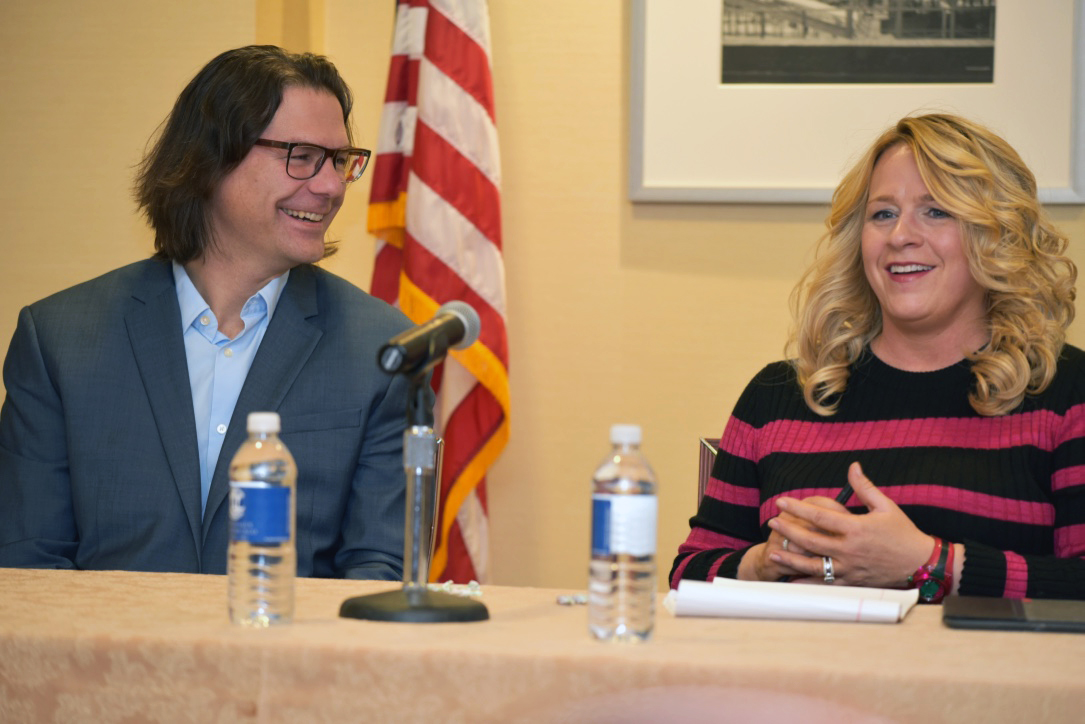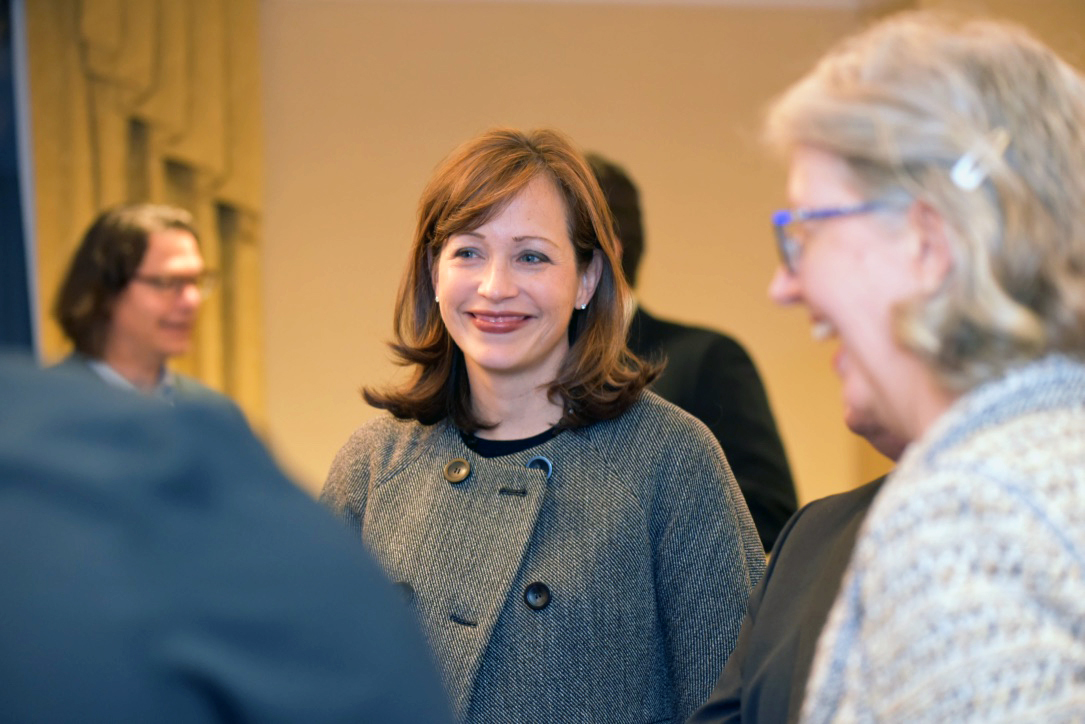 Panelists DePaul Professor of Management Erich Dierdorff, DePaul professor of management, and Claudia Saran, national practice leader for People & Change at KPMG, discussed the ethical implications of AI on HR.
Panelists DePaul Professor of Management Erich Dierdorff, DePaul professor of management, and Claudia Saran, national practice leader for People & Change at KPMG, discussed the ethical implications of AI on HR.
Forty-seven percent of U.S. jobs are at risk of being automated in the next 20 years, according to an
Oxford University study. The research found that jobs in transportation, logistics, office support and the service industry are at a high risk of being fulfilled by automation or artificial intelligence (AI) in the future.
While researchers are just beginning to explore the potential perils of such advancements for workers, human resource (HR) professionals are determining how to navigate this revolutionary change in the workplace. That is why
DePaul University’s Institute for Business and Professional Ethics (IBPE) in conjunction with the Kellstadt Graduate School of Business Department of Management hosted the panel discussion, “Artificial Intelligence and Human Resources,” this fall. Panelists
Erich Dierdorff, DePaul professor of management, and Claudia Saran, national practice leader for People & Change at KPMG, discussed the ethical implications of AI on HR.
“Artificial intelligence offers many great advantages, but implementing these tools without forethought and care is a recipe for disaster—whether it be from a legal, ethical or performance effectiveness standpoint,” Dierdorff said. “It’s important for both practitioners and academics to have these kinds of discussions about what those changes may look like and how we might anticipate any ethical hurdles.”
Dierdorff observes three big implications that the implementation of AI will have on HR departments. The first implication is that HR professionals will need to acquire new technical and critical-thinking skills to allow them to use and interpret AI-based solutions. Secondly, HR professionals will need to continually monitor the consequences of AI-based solutions to ensure validity and to avoid unintended discrimination. Finally, Dierdorff said, HR professionals will need to be vocal advocates for employees’ rights to privacy, equity and fairness when it comes to big data and AI.
Saran wanted to participate in the panel because the topic aligned with the future of work, workforce shaping and an HR transformation project that she is working on with clients and her People & Change team at KPMG. The People & Change consulting arm of KPMG assists clients with becoming more flexible and responsive in complex environments and specializes in the changing nature of work, such as adding AI technology.
 Jaclyn Jensen, associate professor of management and faculty director of the MSHR program at DePaul, served as moderator at the panel discussion.
Jaclyn Jensen, associate professor of management and faculty director of the MSHR program at DePaul, served as moderator at the panel discussion.
“I felt there were some real-time market observations about artificial intelligence from my personal experience that I could share with the audience,” Saran says. “I hope participants walked away with an appreciation for the evolution going on in this space, such as early-stage energy and excitement that led to a lot of exploration and experimentation, which unearths both potential for optimization and ethical complexities.”
The key takeaway that both speakers mentioned was that HR employees need to stay up-to-date on new technological advances in the industry.
DePaul’s Master of Science in Human Resources (MSHR) program exposes students to all of these issues throughout the curriculum and through events such as this seminar.
“This event is important as it brings together scholars, practitioners and students to talk about a significant trend in the field of HR that is likely to affect—if it hasn’t already—the way we work and interact with others in the workplace,” says moderator
Jaclyn Jensen, associate professor of management and faculty director of the MSHR program at DePaul. “It signals the need for HR practitioners to be knowledgeable about data analytics and the impact of automation on the workforce and the business implications of how we use data and technology in the workplace.”
Learn more about: